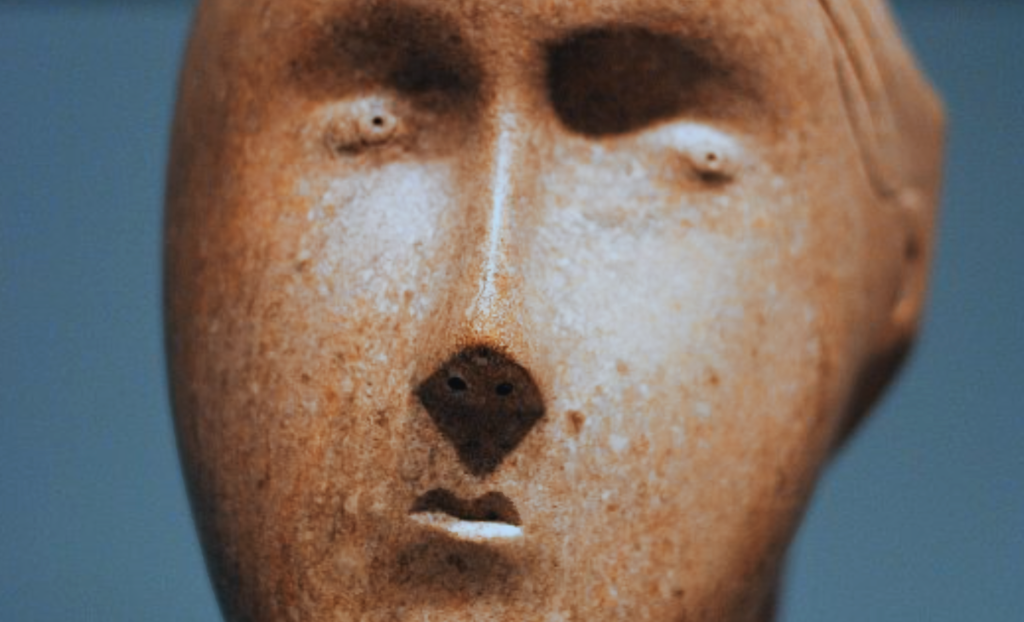

Taking time to reflect in the middle of one’s story
I received tenure—the benchmark for mid-career advancement in academia—in March 2020. That same month the WHO declared COVID-19 a pandemic, and universities across the United States shut down for the rest of the semester. Like others with important milestones that year, I missed all opportunities for celebration. Instead, I found myself running past the tenure marker without a second glance, only to be confronted with an increasing workload. At short notice, I had to move all four of my classes online while navigating the challenges of parenting two small children at home.
But it wasn’t until I celebrated another milestone recently—turning forty—that I recognized the most important thing I had missed in 2020: a moment to pause and acknowledge the transition from one life stage to another.
I am back on campus and my professional life is in a regular rhythm. Yet I’m no longer the “new kid on the block.” I’ve achieved tenure—that goal toward which I had been working for the majority of my professional life, first as a PhD student then as assistant professor.
I can pinpoint the exact moment I first dreamt of becoming a literature professor. I was a bright-eyed student in a Victorian literature class. We were reading Wuthering Heights. I timidly approached my tweed-clad professor’s door after class one day and asked something along the lines of, “Could I spend my life in rooms like this, talking about books?” That younger version of me, full of hope and uncertainty, would be amazed to see the career trajectory in front of her.
But when I finally reflected on my career recently, I wasn’t exuberant. Perhaps it was because of the unfortunate timing of when I received tenure. Perhaps it was because the humanities are under attack. Or perhaps it was because I turned forty.
Whatever it was, I had to admit to myself that I was experiencing a mid-career crisis.
Would I be teaching the same classes and the exact same books for the next twenty to thirty years? I wondered. Should I remain teaching or pursue administration? Now that I don’t have to publish for tenure, should I continue publishing at the same rate and in the same types of places? Should I move? Or should I abandon academia and join those intrepid souls writing quit lit essays, as they move from academia to industry or decide to stay home with their children and pursue scholarly fulfillment from there?
To be honest, I felt exhausted by the prospect of it all. None of the opportunities sparked excitement. The ivory towers that had once filled me with a sense of possibility now felt stifling and claustrophobic. The only certainty I had was that I couldn’t realistically uproot my family’s lives to move elsewhere simply because I was feeling stuck professionally, even as I understood why some others have done just that.
While it may be somewhat embarrassing to admit these feelings publicly, I’ve discovered I’m not alone whenever I share them with friends and colleagues, in my industry and others. In academia the terms “mid-career slump,” “terminal associate,” and “post-tenure letdown” are common for a reason. Similarly, in fields like medicine, IT, and business, “burnout,” “mid-career blues,” and “professional identity crisis” are widely recognized. Collectively, these experiences are often summed up under the broader term, the one I suffered with: “mid-career crisis.”
In academia, mid-career faculty make up the largest group of employees at most institutions. They are also the ones who carry most of the responsibility for service, leadership, and mentoring—the tasks that keep institutions running. Yet as Vicki L. Baker points out in her foundational book on the subject, Managing Your Academic Career, “Mid-career professionals are the least satisfied employee population, a finding consistent in higher education and industry.” This is a concern not only for the burned out individuals but also for institutions that desire to remain innovative and effective.
But those who know me best know I’m not one to get stuck for long. While my colleagues and I have occasionally whispered about how exhausted we are and flirted with the idea of “quiet quitting,” we have also shared ways we have become reinvigorated with our jobs after periods of disillusionment.
Here’s a simple truth: I’m not the same person I was at twenty when I read Wuthering Heights. Heathcliff no longer seems as romantic as then. Nor should my career center on teaching that novel, or any other, just as I first encountered it. The professor who inspired me then was about the age I am now. I suspect that she too reimagined herself and her teaching of that novel in mid-career. Likely I was inspired not by her stagnation, but by her growth in finding new ways to teach a beloved classic.
For some, mid-career might mark a slump—it certainly did for me. But it also marked something else. Here’s another word often whispered amongst my colleagues in academia and beyond: reinvention. No longer the person I was at twenty, dreaming of this profession, nor the assistant professor at thirty, fresh with ambition, I found myself pondering how to align my current values with the position I now hold.
For me, a new telos—a new goal—has emerged: I want my academic life to serve God. I want to be an active leader in advancing the mission of my Catholic university while continuing to teach literature well. This is a far cry from the agnostic who first read Wuthering Heights and had never stepped foot in a faith-based institution. It’s equally distant from the starry-eyed professional who began her career at such a place, unaware of how a conversion story and a pandemic would transform her relationship with her work.
Since embracing this new purpose, I’ve taken risks I wouldn’t have taken before—applying for grants, running mentoring programs, writing for public venues like this one, and using my voice to support others who feel stuck. I feel more joy in my career than ever.
Although Baker pointed out those dire statistics I mentioned earlier, her work offers hope for other wandering souls in academia who might find themselves lost somewhere in the middle of a mid-career slump. She reminds readers: “While not without challenges, mid-career is ripe with opportunity and signals a time to reflect intentionally about reimagining one’s career evolution. It is about rewriting the mid-career narrative—one in which career planning is aspirational, rooted in joy, full of passion, and focused on the professional and personal areas most valued.”
If you find yourself at a mid-career crossroads, take the time to reflect. Does your work align with your values—with who you are now, not who you were twenty years ago? If not, reinvent. Embrace uncertainty as opportunity. Take risks.
And don’t forget to celebrate when those risks pay off. We’re in the middle of the story, so it’s not too late for that either.
LuElla D’Amico is Associate Professor of English and the Women’s and Gender Studies Coordinator at the University of the Incarnate Word. She is the editor of Girls’ Series Fiction and American Popular Culture and co-editor of Reading Transatlantic Girlhood in the Long Nineteenth Century.